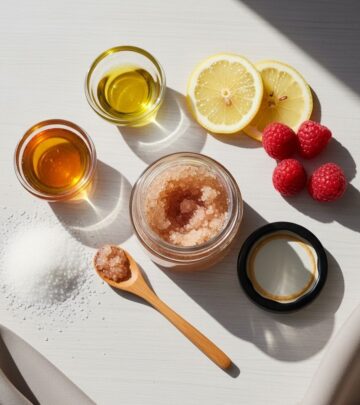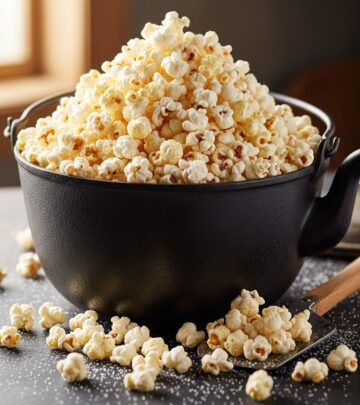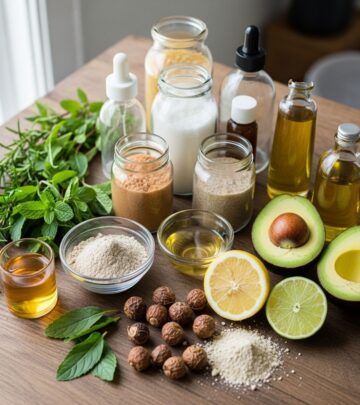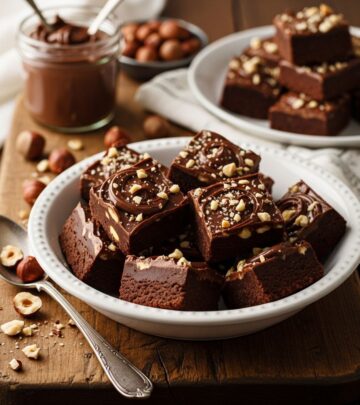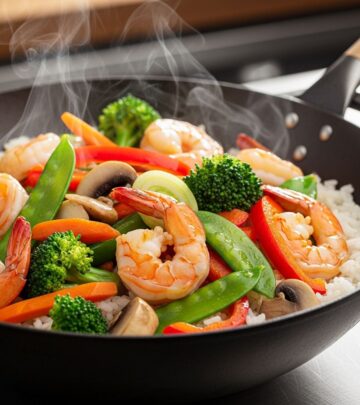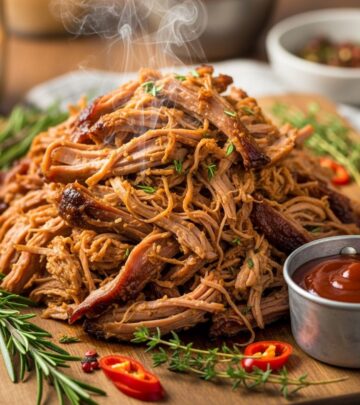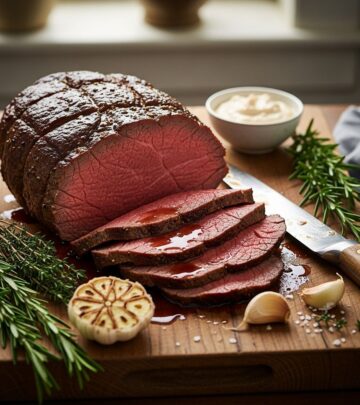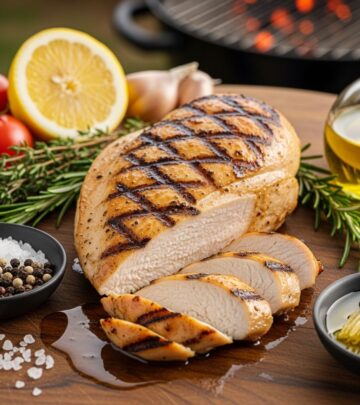Cryo-Poached Pears: Unlocking the Science of Texture and Flavor
Freezing and gentle poaching combine to deliver evenly infused, crisp-tender mouthfuls.
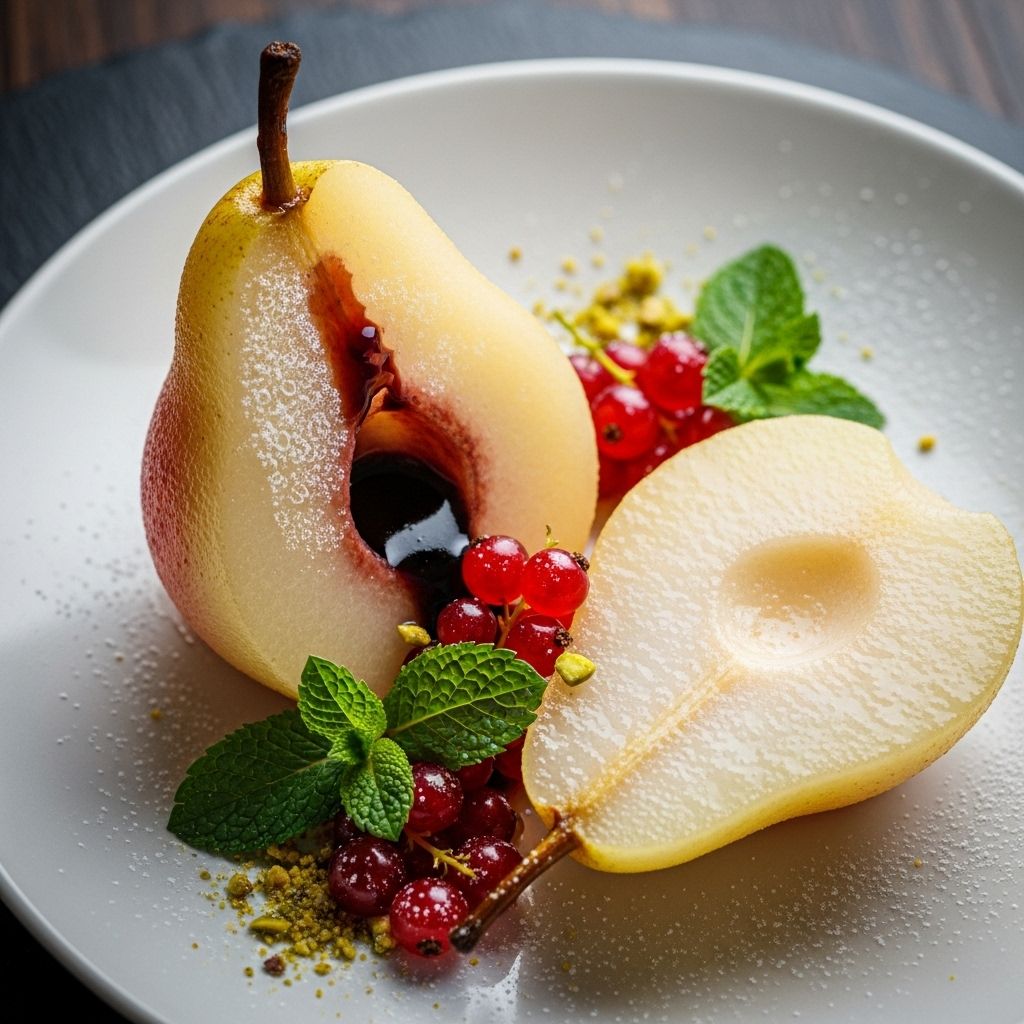
Cryo-Poached Pears: A Scientific Twist on a Classic Dessert
Cryo-poached pears represent a compelling intersection of culinary tradition and kitchen science, introducing a method that harnesses the powers of freezing and rapid poaching to create a pear dessert with unprecedented juiciness and textural delight. Far from a novelty, this technique is a revelation for anyone seeking to elevate their fruit cookery through simple yet transformative scientific principles.
Why Cryo-Poaching?
The motivation behind cryo-poaching is to solve a perennial problem with traditional poached pears: texture and juiciness. Standard poaching, while flavorful, often leaves pears slightly soft and sometimes waterlogged, masking their natural crispness and subtle flavors. Cryo-poaching elegantly sidesteps these pitfalls by dramatically enhancing the fruit’s cellular structure before it ever hits the poaching syrup.
- Juicier pears: The freezing step reorganizes the internal structure, creating pathways for the syrup to saturate every bite.
- Vibrant flavor: The infusion of syrup becomes more complete, concentrating the aromatic notes of spices and fruit.
- Enhanced aroma: Quick poaching locks in volatile compounds that are often lost with prolonged cooking.
The result? A dessert that is both familiar and newly thrilling—a pear that is more pear than any you’ve tasted before.
The Science: How Freezing Transforms Fruit Texture
The central trick of cryo-poaching is simple: freeze the pears before poaching. But why?
When a pear is frozen, ice crystals form within its cells, puncturing cell membranes. This destruction alters the fruit’s physical structure in a way akin to controlled culinary tenderizing. Upon thawing and gentle poaching, those disrupted cell walls allow the poaching liquid to rush in, saturating the fruit from within. The outcome is distinctly juicy and more flavorful thanks to the uniform infusion.
- Cell wall rupture: Ice crystals are nature’s tenderizers, making the fruit receptive to absorbing flavor.
- Rapid syrup penetration: The process ensures every bite is evenly flavored, not just the surface.
- Texture contrast: The combination of syrupy juiciness with retained crispness creates a novel mouthfeel.
This culinary use of freezing is sometimes known as cryo-blanching, a technique adapted from professional kitchens to the home cook’s toolkit with nothing more than a freezer and basic equipment.
Choosing the Right Pears
Not all pears are created equal when it comes to cryo-poaching. The ideal fruit should be:
- Underripe but not rock-hard: Too ripe and the pear will turn mushy after freezing; too hard and it won’t absorb the syrup well.
- Firm-fleshed varieties: Bosc, Anjou, and Bartlett are good candidates, but Asian pears can also be used for unique texture and flavor.
- Unblemished skin: Look for fruit without bruises or cuts, as these can worsen during freezing.
Tip: Peeling is essential, as pear skin can become tough after the freezing process. Use a sharp vegetable peeler for best results.
Step-by-Step Guide: The Cryo-Poaching Process
The method for cryo-poaching is accessible yet precise. Here’s how to master the process:
- Peel and core the pears. Work quickly to prevent browning; if needed, rub with a cut lemon or submerge in acidulated water.
- Freeze the prepared pears. Place on a lined baking sheet, ensuring they aren’t touching, and freeze until completely solid—ideally overnight.
- Prepare the poaching syrup. This can be as simple as water and sugar, or more complex with spices, wine, or citrus zest. Bring everything to a gentle simmer.
- Poach the frozen pears. Add the frozen fruit directly to the simmering syrup. The shift from extreme cold to gentle heat is key—rapidly infusing flavor without cooking the pears to mush.
- Simmer gently. Poach until the pears are just tender, usually in minutes, and monitor carefully.
- Chill and serve. Allow the pears to cool in the syrup, further absorbing flavor, then serve chilled or at room temperature.
Sample Poaching Syrup Combinations
| Base Liquid | Sweetener | Flavorings |
|---|---|---|
| Water | Sugar, honey, or agave | Vanilla, cinnamon, orange peel |
| White wine | Sugar | Star anise, black peppercorns |
| Green tea | Honey | Ginger, cardamom, lemon |
Serving and Presentation
Cryo-poached pears not only taste exceptional but are visually elegant. Consider these serving suggestions for optimal effect:
- Classic: Serve halved or sliced, bathed in syrup, garnished with a sprig of mint or a curl of citrus zest.
- With accompaniments: Pair with a scoop of vanilla ice cream or dollop of whipped cream for contrast.
- On pastry: Lay atop a tart shell, frangipane, or toasted brioche for a composed dessert.
- For breakfast: Layer over yogurt, oatmeal, or cottage cheese for an elevated morning treat.
Pro tip: Reduce the leftover poaching liquid to a syrupy glaze for drizzling.
Common Questions About Cryo-Poaching
Q: Can I use frozen store-bought fruit?
A: It’s best to freeze your own fresh pears. Store-bought frozen fruit may be cut irregularly and have lost too much structure for effective cryo-poaching.
Q: Is peeler or paring knife better for prepping pears?
A: A sharp vegetable peeler yields a smooth surface, essential for even texture in the final dessert.
Q: Can other fruits be cryo-poached?
A: Some firm fruits (such as apples or quinces) respond well, but watery or soft fruits (like berries) tend to break down too much.
Q: What’s the best storage method?
A: Store cryo-poached pears submerged in their syrup in an airtight container. They keep for up to 5 days refrigerated.
Q: Is sugar necessary?
A: Sugar is key for syrup consistency and flavor balance, but the amount can be reduced. Substitute with honey or agave if desired.
Tips and Troubleshooting
- Avoid overcooking: The pears should be tender yet retain their structure. Overcooking will lead to mushy dessert.
- Watch the syrup temperature: Keep at a gentle simmer, not a rolling boil, to preserve flavor and texture.
- Play with spices: The technique is adaptable—try infusing your poaching syrup with everything from saffron to black tea.
- Let pears cool in the syrup: This boosts both flavor and juiciness.
Cryo-Poached Pears: Recipe Card
Ingredients
- 4 firm pears (Bosc, Anjou, Bartlett, or Asian)
- 4 cups water or wine
- 1 to 1 1/2 cups sugar (or honey/agave to taste)
- 1 vanilla bean, split (or 2 teaspoons vanilla extract)
- 1-2 strips lemon or orange peel
- Optional: whole spices—star anise, cinnamon stick, cardamom pod, ginger slices
Directions
- Peel, halve, and core your pears. Freeze on a lined tray, uncovered, until solid (at least 8 hours).
- Combine water or wine, sugar, vanilla, citrus peel, and any spices in a wide pot. Bring to a simmer.
- Add the frozen pears. Simmer gently until just tender, 10–15 minutes depending on size and variety. Do not boil.
- Let pears cool in the syrup, refrigerating for several hours or overnight for best flavor.
- Serve halved or sliced, spooning syrup over top. Garnish as desired.
Table: Cryo-Poached vs. Classic Poached Pears
| Aspect | Cryo-Poached Pears | Classic Poached Pears |
|---|---|---|
| Texture | Intensely juicy, crisp-tender | Soft, sometimes mushy |
| Flavor Infusion | Complete, evenly permeated | Primarily at surface/layered |
| Prep Time | Longer (due to freezing step) | Shorter |
| Skill Required | Moderate | Beginner |
| Best For | Showpiece desserts, textural intrigue | Traditional fruit desserts |
Expanding the Technique: Variations and Ideas
- Tea-Poached: Use green or herbal tea for an earthy, light flavor profile.
- Red Wine–Poached: Infuse with red wine and mulling spices for a deeper, richer dessert, perfect for cooler weather.
- Honey-Spiced: Substitute some sugar with honey and add warm spices like cinnamon and cloves.
- Garnish creatively: Serve the pears with toasted nuts, a sprinkle of citrus zest, or a crack of black pepper for contrast.
Frequently Asked Questions (FAQs)
Q: Can I scale this recipe for a dinner party?
A: Absolutely. The freezing and poaching steps adapt well to larger quantities; just use a bigger pot and monitor cooking times accordingly.
Q: Do I have to use refined sugar?
A: No. Adjust the sweetener to your taste—try raw sugar, honey, or agave, though it may alter the syrup consistency slightly.
Q: What’s the best way to serve cryo-poached pears for visual impact?
A: For maximum presentation, serve the pear halves upright, drizzle with syrup, and accent with a colorful garnish like fresh mint or pomegranate seeds.
Q: Can this method be used for savory dishes?
A: Yes. Try poaching the pears in a lightly sweetened broth with peppercorns and herbs, and serve alongside roast poultry or pork.
The Takeaway: Science-Driven Simplicity
Cryo-poaching demonstrates how a basic scientific principle—freezing and thawing—can dramatically transform even a humble fruit into an elevated culinary experience. With only a few steps and ingredients, you unlock flavor, aroma, and texture beyond the reach of traditional methods. Whether you are a curious home cook or a dessert devotee, trying cryo-poached pears is an essential adventure in the art and science of flavor.
References
Read full bio of medha deb


